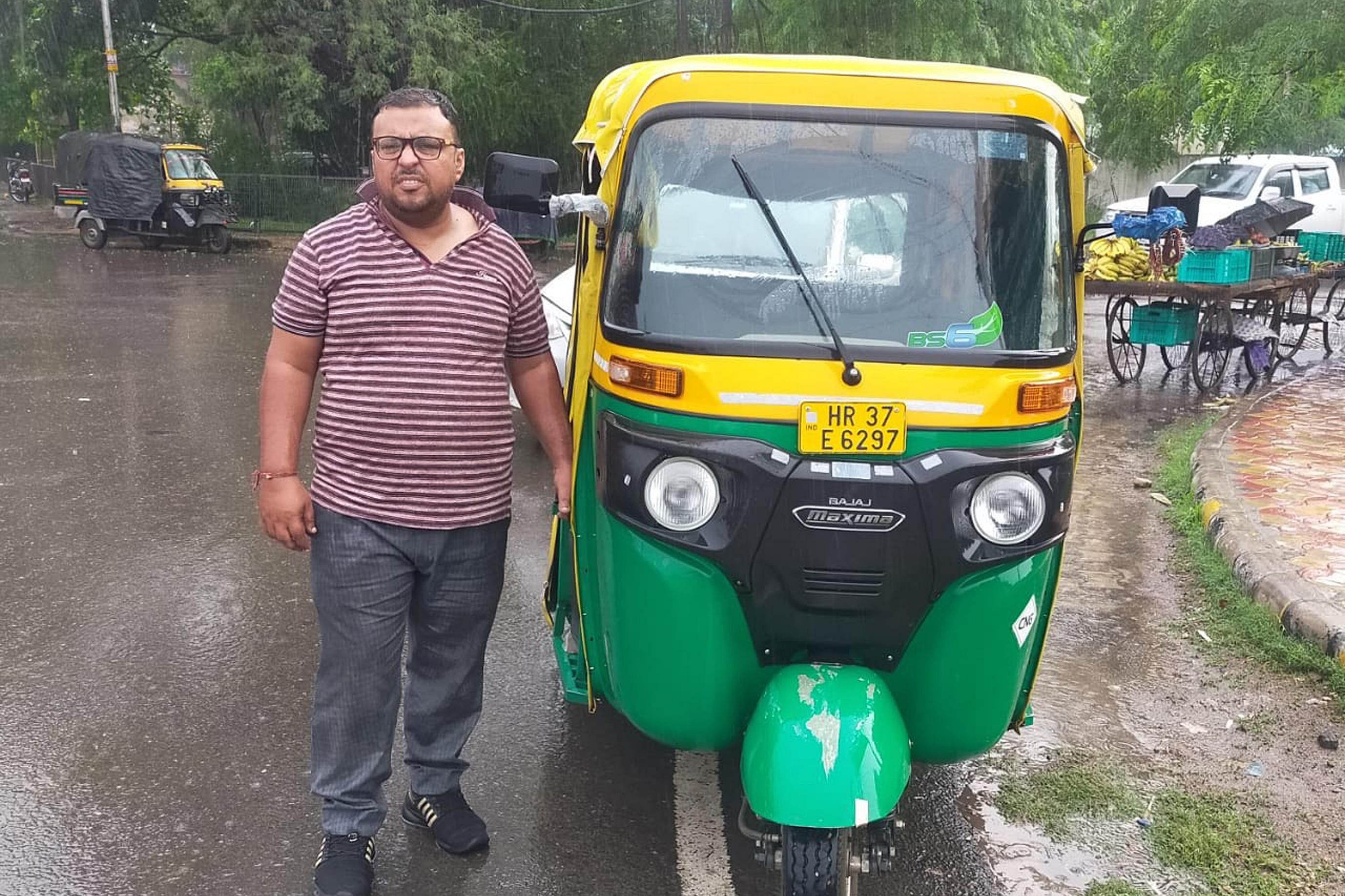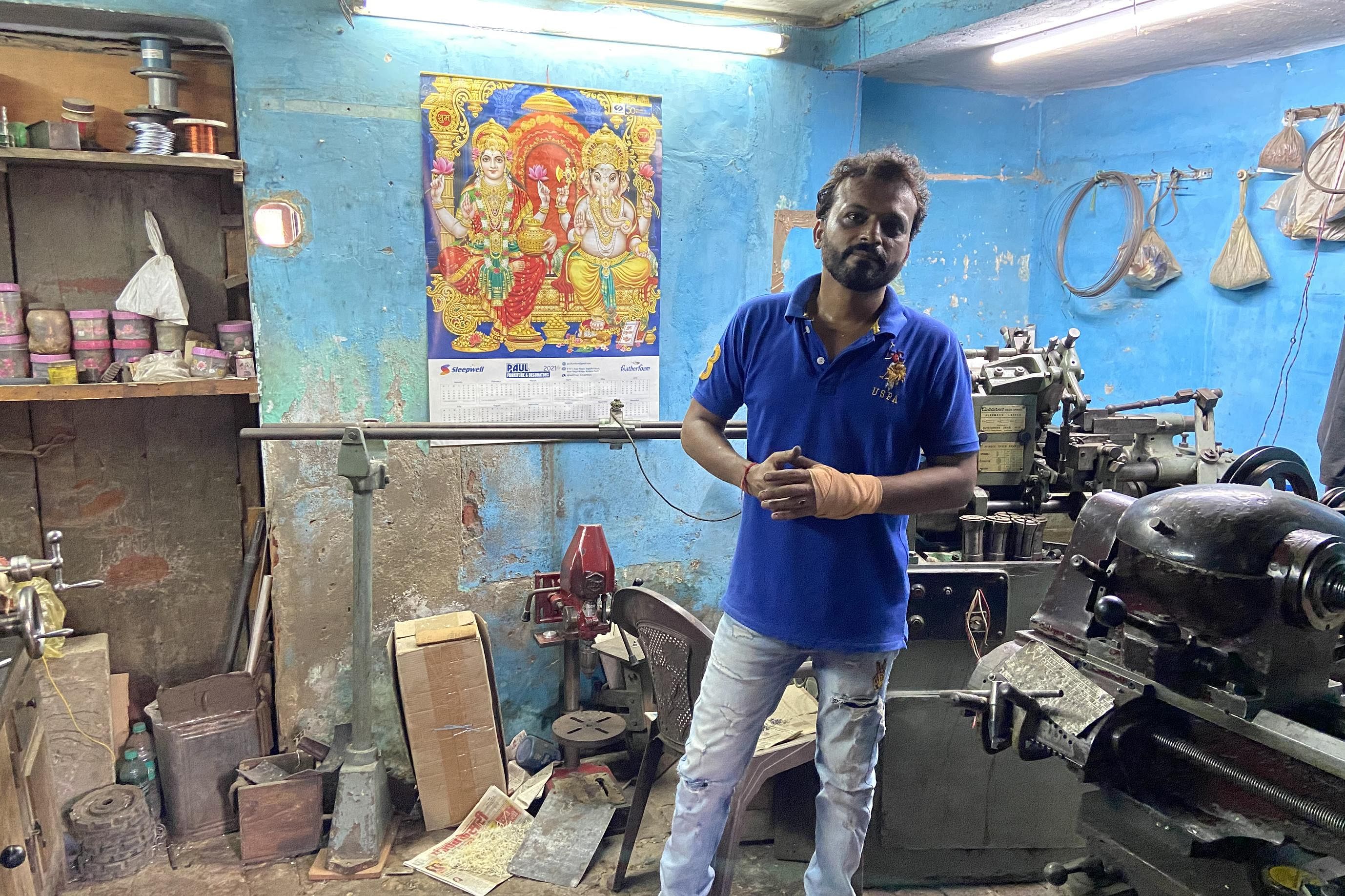NEW DELHI - Every morning, Mr Amit Malhotra walks past the eight school vans he owns, and drives off in a hired autorickshaw, to ferry passengers around Ambala in India's Haryana state.
His vans have remained parked in front of his house since the Covid-19 pandemic hit India last year, as classes have mostly been online, and there have been no children to take to school.
"I never thought this would be my situation," he said.
"The drivers I used to employ keep calling me to ask when schools will open, and what answer do I give them?"
He has not told family and friends that he has been driving an autorickshaw for the last two months, a humbler job than running a fleet of school vans.
But he fears nothing stays hidden in a small city.
"There is a lot of change in my social status. It's very difficult sometimes. I cry, feeling where have I landed in life," admitted Mr Malhotra, 41, who has two children, aged three and six.
He has sold one van but does not want to sell his business yet, though his earnings have gone down from 300,000 rupees (S$5,475) a month to 9,000 rupees.
All services and industries associated with education across the country have been adversely hit by the prolonged school closures caused by the pandemic.
There have been no primary-level lessons on campuses for 16 months, while senior classes have opened intermittently and are reopening to different timelines across the country.
Many parents remain wary about sending their children to school fearing a third wave of coronavirus infections.
Mr Kulbhushan Sharma, president of the National Independent Schools Association, a federation of state associations of budget private schools, estimates that the livelihoods of roughly 300 million people across the country depend on schools in some way.

They include bus drivers and electricians, as well as providers of uniforms and scientific instruments.
In Ambala, a city of 1.13 million people, he calculates the school ecosystem supports 25 per cent to 30 per cent of the population.
"Everyone is looking at the issue of education through school fees. But it is, more importantly, resulting in learning loss and GDP (gross domestic product) loss. The common man's earnings have been impacted," he said.
"There are so many people dependent on schools for their livelihood."
Livelihood loss is widespread in industries affiliated with schools and colleges.
Some have managed to start something new, with school bus drivers opening roadside food stalls, uniform-makers selling vegetables and school lab equipment manufacturers making masks instead.
But there are many others who are unable to make a switch.
Mr S. P. Sharma, 62, successfully educated his children and managed household expenses for over three decades mostly by taking photographs for school events and student identity cards.

Now, he is sitting at home idle and anxious, after his son, a hotel management graduate, also lost his job.
"I am a blood pressure patient. But I skip my medication at times. A strip of 10 tablets, I stretch to 15 days. I have brought monthly expenses down from 15,000 rupees to 5,000 rupees," said Mr Sharma.
Many like him are praying for schools to reopen fully and some semblance of normality to return.
"The show must go on. It's a fallacy that children will get Covid-19 the moment they step into a school," said Mr Praveen Sharma, 52, who runs a schoolbook and stationery shop in Ambala.
India's economy has been impacted severely by the pandemic, with GDP growth contracting 7.3 per cent in the 2021 financial year.
The impact is particularly severe on small-scale industries.
Ambala is known in northern India for manufacturing scientific instruments for schools and engineering colleges.
There are dozens of small units that have fallen silent.

Mr Neeraj Dhiman, 42, stands in his tiny manufacturing unit in Ambala with nothing to show for the work he does as he has no orders.
He whips out a phone to show pictures of vacuum pumps, electric bells and hydraulic spheres.
"In a month I am earning around 10,000 rupees. What can you eat or do with such little money?"
In the same lane where there are other such manufacturing units and trades associated with the school ecosystem, the only visible activity is vendors selling vegetables.

Among them is Mr Sanatan Kumar, 52, who sells vegetables in front of his tailoring shop.
For the first time in 35 years, he has moved away from his core business of sewing school ties and accessories.
"I had to sell vegetables to pay for household expenses," he said.
His hopes have been raised by news reports that the government will start vaccinating children soon.
"I hope schools reopen fully," he added.

